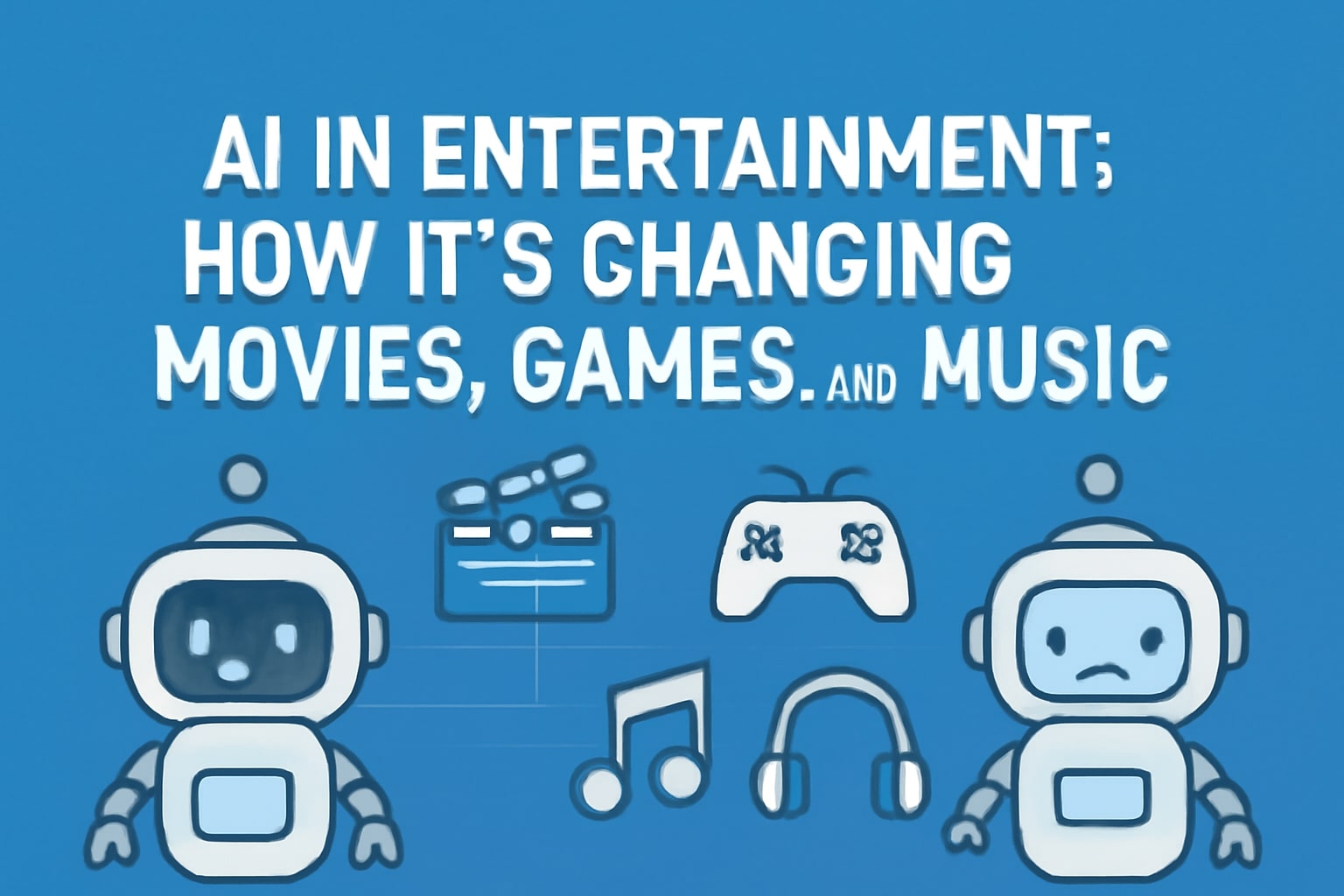Artificial Intelligence is no longer just a theme in science fiction. It is now a powerful tool transforming entertainment creation, distribution, and consumption. From blockbuster visual effects to personalized playlists, AI in entertainment is reshaping the entire media landscape.
1. AI in Filmmaking and Visual Effects (VFX)
How it’s used: AI is making VFX faster, cheaper, and more realistic. Moreover, it helps filmmakers achieve results that were once impossible.
- De-aging Actors: Used in films like The Irishman, AI algorithms analyze past footage of an actor to create a convincing younger version.
- Deepfakes and Digital Humans: AI can create digital doubles for stunts or even CGI characters, such as young Luke Skywalker in “The Mandalorian.”
- Scene Restoration and Upscaling: AI remasters old films, removes scratches, and upscales low-resolution footage to 4K or 8K.
2. AI in Video Games
How it’s used: AI is creating more immersive and dynamic gaming worlds. In addition, it makes gameplay unpredictable and more exciting.
- Smarter Non-Player Characters (NPCs): NPCs now react to player actions in complex and realistic ways using AI-driven decision trees.
- Procedural Content Generation: Games like “No Man’s Sky” use AI to generate planets, ecosystems, and entire universes.
- Upscaling Technology: Tools such as NVIDIA DLSS and AMD FSR use AI to upscale images in real-time, improving frame rates without lowering visual quality.
3. AI in Music Creation and Curation
How it’s used: AI serves as both a collaborator for artists and a curator for listeners. As a result, it makes music more accessible and personalized.
- Music Generation: Tools like Google’s MusicLM and OpenAI’s Jukebox generate original music from text prompts.
- Mixing and Mastering: AI plugins such as iZotope’s Neutron analyze and suggest professional-quality mixes.
- Personalized Playlists: Spotify’s “Discover Weekly” and Apple Music’s “For You” use AI to recommend new tracks.
4. AI in Content Recommendation Systems
How it’s used: This is one of the most visible uses of AI in entertainment. Netflix, YouTube, TikTok, and Spotify rely on algorithms that adapt to user behavior.
Instead of suggesting only what’s popular, AI predicts what is most relevant for you. Therefore, users get highly personalized recommendations that keep them engaged longer.
5. The Future: Interactive and Generative Entertainment
The next frontier of AI in media is real-time personalization. This will completely change how audiences experience stories and games.
- Interactive Movies: Stories could shift based on your emotional reactions measured via webcam or wearable devices.
- AI Game Masters: Games may include endless, evolving narratives generated by AI Dungeon Masters.
- Personalized Music: Songs may adjust tempo or instrumentation to match your mood or activity.
AI is not replacing human creativity; rather, it is enhancing it. Therefore, artists focus more on storytelling while AI manages technical details. The outcome is an entertainment experience that is more immersive, personalized, and limitless.


Related reading: Future of Technology 2025 | AI in Business
